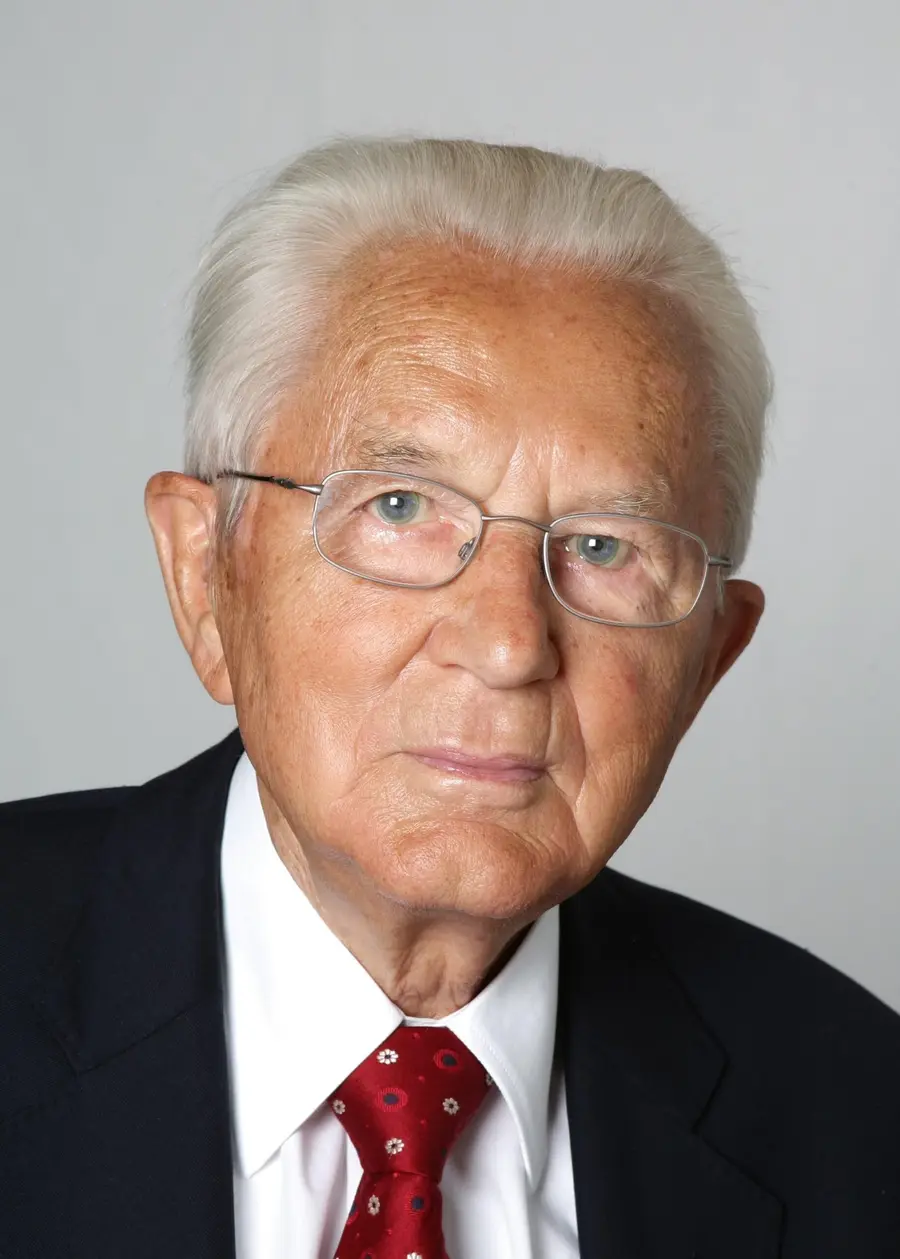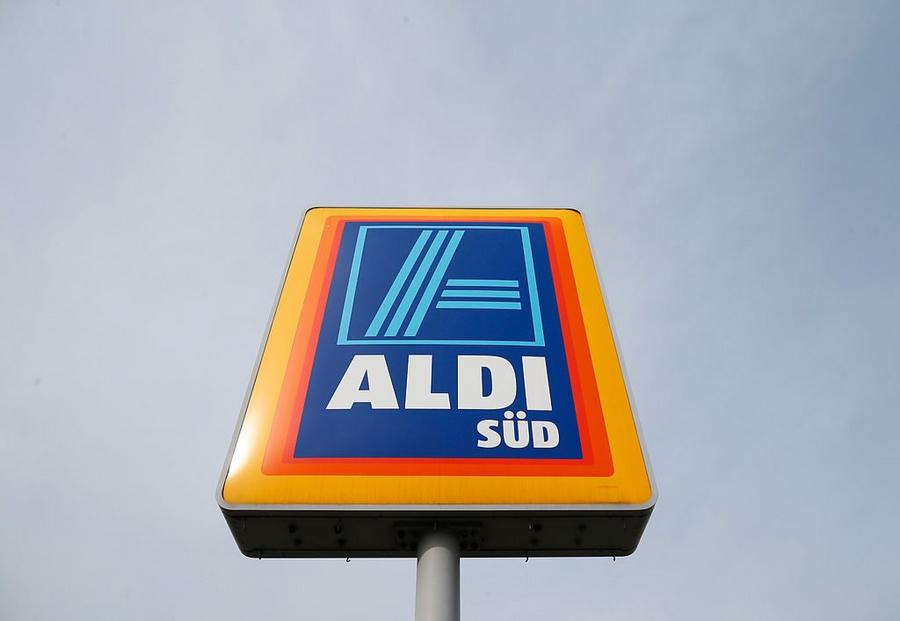What was Karl Albrecht's net worth?
Karl Albrecht was a reclusive German billionaire tycoon who had a net worth of $26 billion at the time of his death in 2014. He was the richest person in Germany for much of his adult life, and at the time of his death, he was the 26th richest person in the world
Albrecht earned his fortune as the sole owner of Aldi Süd, the southern division of the Aldi empire, which at his death operated more than 4,800 stores across Europe, the United States, and beyond. Known for his quiet determination, discipline, and preference for privacy, Albrecht built a retail empire that reshaped the global grocery industry. His success stemmed not from luxury or publicity but from relentless efficiency, frugality, and a revolutionary vision for how people shop for food.
Early Life
Karl Hans Albrecht was born on February 20, 1920, in Essen, Germany. His father worked as a miner and later a baker's assistant, while his mother operated a small corner grocery store. Karl and his younger brother Theo Albrecht grew up modestly, helping in their mother's shop and gaining firsthand experience in retail.
During World War II, Karl served in the German Army and was wounded while stationed on the Russian front. After the war ended, he returned to Essen with Theo in 1946. The brothers were stunned to discover that their mother's grocery store had survived the relentless Allied bombing of the industrial city. With few other options, they decided to dedicate themselves to rebuilding and expanding the business.

(ALDI SUD/DPA/via Alamy)
Building Aldi
The brothers quickly set about transforming their mother's small shop into a thriving discount grocery model. By the early 1950s, they had expanded from one location to 30, operating under the name "Albrechts." They kept overhead low, offered only essential items, and focused on turnover rather than variety. By the early 1960s, the chain had grown to more than 300 stores.
Around this time, they rebranded the chain "Aldi," short for "Albrecht-Discount." The model was simple but revolutionary: low prices, limited selection, and maximum efficiency. The approach resonated deeply with post-war German consumers, who wanted affordability and consistency above all else.
Eventually, the brothers decided to divide their fast-growing empire. Theo took charge of Aldi Nord (North), while Karl oversaw Aldi Süd (South). Each pursued expansion independently, but both divisions thrived. In 1979, Theo made a significant move by purchasing the American specialty grocery chain Trader Joe's, which remains wholly owned by Aldi Nord.
Aldi Süd's Global Growth
Karl's Aldi Süd became the more internationally focused branch of the family business. Under his leadership, it expanded across Europe and into markets like the United States, the United Kingdom, Ireland, and Australia. Aldi Süd's U.S. venture was particularly transformative, eventually growing to more than 1,300 stores.
By 2014, Aldi Süd operated over 4,800 locations worldwide and generated an estimated $50 billion in annual revenue. Unlike many corporations, ownership remained tightly controlled. Karl Albrecht still owned 100% of Aldi Süd at his death, holding the company through a series of carefully structured trusts that ensured his fortune remained concentrated and private.

(Ralph Orlowski/Getty Images)
Wealth and Reclusiveness
For decades, Karl Albrecht ranked as the richest man in Germany and one of the wealthiest people in the world. Yet he lived in near-total privacy. His extreme secrecy was partly shaped by a traumatic family event: in 1971, his brother Theo was kidnapped and held captive for 17 days until a $2 million ransom was paid. The ordeal left both brothers even more determined to shield themselves and their families from public view.
Karl never granted a public interview, and only a handful of photographs of him were ever published. Unlike many billionaires, he avoided publicity, eschewed luxury displays, and dedicated his life to quietly running his business.
Personal Interests
Despite his reclusive lifestyle, Karl did indulge in one passion: golf. He was an avid player and in 1976 even built his own luxury country club. Golf provided him with a private outlet away from business pressures, and his courses became gathering spots for a small circle of confidants and business associates.
Outside of this hobby, little was known about his personal life. He married and had two children, though his family remained almost entirely out of the public eye.
Death and Legacy
Karl Albrecht died on July 16, 2014, at the age of 94. At the time of his death, he had amassed a fortune of $26 billion, retaining his title as Germany's richest man. His passing followed the death of his brother Theo in 2010, marking the end of an extraordinary partnership that began with a single undamaged grocery store in post-war Essen.
The Aldi model they created remains one of the most influential in retail history. Today, Aldi continues to expand worldwide, offering consumers affordable prices and no-frills shopping experiences that trace directly back to Karl and Theo's vision.
Karl Albrecht's story is remarkable not because of public triumphs or flamboyant displays of wealth, but because of the opposite: a life defined by discipline, secrecy, and a steadfast belief in efficiency. From humble beginnings in a war-ravaged city, he built one of the largest fortunes in modern Europe and forever changed the way people buy their groceries.
/2009/09/karl.png)
/2009/09/theo-albrecht-1.jpg)
/2014/05/Erivan-Haub.jpg)
/2013/04/GettyImages-154570812.jpg)
/2012/11/urban.jpg)
/2010/07/CNW-Man-5.png)
/2009/09/Brad-Pitt.jpg)
/2009/11/George-Clooney.jpg)
/2019/10/denzel-washington-1.jpg)
/2019/11/GettyImages-1094653148.jpg)
:strip_exif()/2009/09/P-Diddy.jpg)
/2020/04/Megan-Fox.jpg)
/2017/02/GettyImages-528215436.jpg)
:strip_exif()/2015/09/GettyImages-476575299.jpg)
/2020/06/taylor.png)
/2009/09/Jennifer-Aniston.jpg)
/2020/02/Angelina-Jolie.png)
/2009/09/karl.png)
/2009/09/theo-albrecht-1.jpg)
/2018/09/GettyImages-901462836.jpg)
/2019/04/GettyImages-185201372.jpg)
/2013/03/Lars-Larsen.jpg)
/2018/03/CNW-Man-5.png)
/2015/02/GettyImages-632829238.jpg)
/2014/05/Erivan-Haub.jpg)
/2018/03/GettyImages-821622848.jpg)
/2020/01/lopez3.jpg)